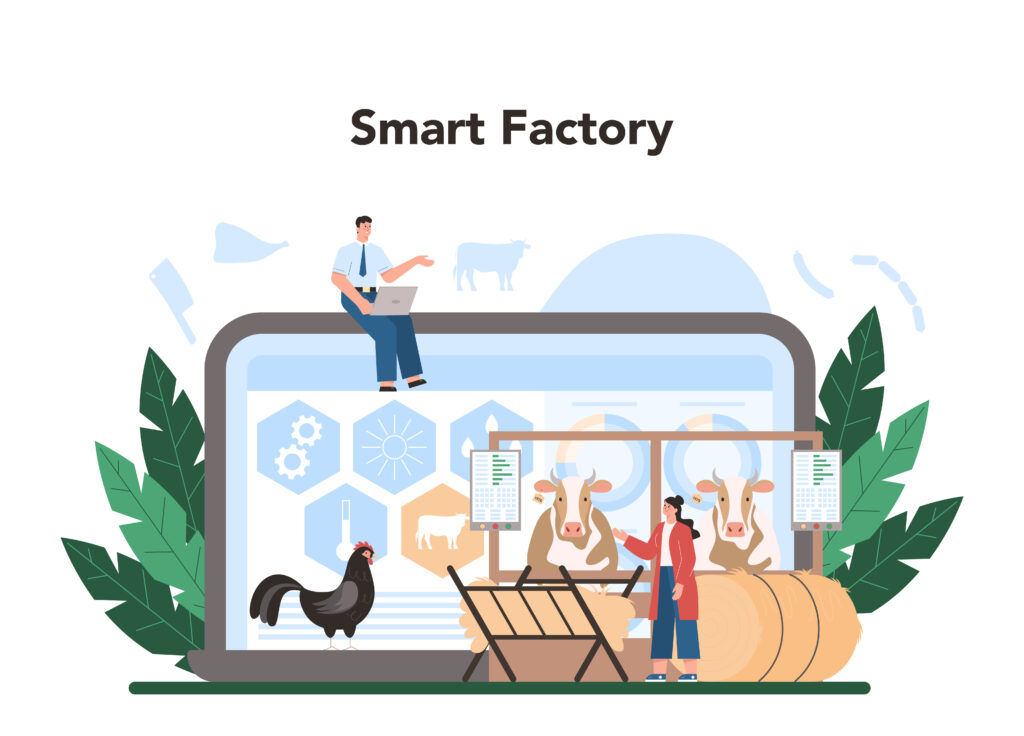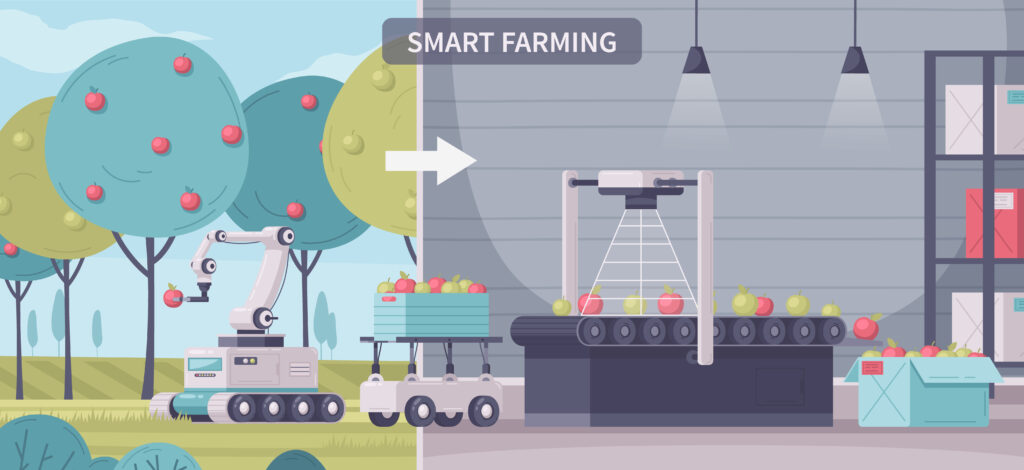The food processing industry is undergoing a significant transformation as technological advancements reshape traditional practices. Among these advancements, Artificial Intelligence (AI) and the Internet of Things (IoT) are playing pivotal roles in revolutionizing maintenance processes. These technologies are not only enhancing efficiency but also ensuring higher standards of safety, quality, and cost-effectiveness. In this article, we will explore how AI and IoT are influencing maintenance in the food processing industry and what this means for the future of the sector.
What is The Role of AI in Maintenance?
AI is rapidly becoming a cornerstone in modern maintenance strategies. In food processing, where machinery and equipment are critical to production, AI can predict failures before they occur, reducing downtime and preventing costly disruptions. Through machine learning algorithms, AI systems analyze vast amounts of data from equipment sensors to identify patterns that indicate wear and tear or other potential issues.
For example, AI-powered predictive maintenance systems can monitor vibration, temperature, and pressure in machinery. When these parameters deviate from the norm, the system alerts maintenance teams, allowing them to intervene before a breakdown occurs. This proactive approach minimizes unplanned downtime, reduces repair costs, and extends the lifespan of equipment.
Moreover, AI can optimize maintenance schedules by analyzing historical data and usage patterns. Instead of following a fixed maintenance schedule, AI enables a more dynamic, needs-based approach, ensuring that maintenance is performed only when necessary. This not only saves time and resources but also keeps the production line running smoothly.
IoT’s Impact on Maintenance
The Internet of Things (IoT) is another game-changer in the food processing industry, particularly in the realm of maintenance. IoT involves the interconnection of devices and sensors through the internet, enabling real-time data collection and communication. In food processing plants, IoT devices can monitor equipment conditions and environmental factors like humidity, temperature, and air quality, which are crucial in maintaining food safety standards.
IoT devices provide continuous, real-time monitoring of machinery and equipment. This constant stream of data allows for immediate detection of anomalies, such as a machine operating outside its optimal parameters. IoT-enabled maintenance systems can automatically trigger alerts or even shut down equipment to prevent further damage or contamination.
Furthermore, IoT enhances traceability in maintenance operations. Maintenance activities can be tracked and recorded digitally, ensuring compliance with regulatory requirements and making it easier to audit processes. This level of transparency is particularly important in the food industry, where safety and quality control are paramount.
Integration of AI and IoT: A Synergistic Approach
The integration of AI and IoT in maintenance practices offers a synergistic approach that enhances the overall efficiency and effectiveness of the food processing industry. By combining AI’s predictive capabilities with IoT’s real-time monitoring, companies can achieve a more comprehensive maintenance strategy.
For instance, IoT devices can gather real-time data from equipment, which AI systems then analyze to predict potential failures or optimize performance. This integration enables a shift from reactive to proactive maintenance, where issues are addressed before they escalate into significant problems. The result is improved equipment reliability, reduced downtime, and lower maintenance costs.
Benefits of AI and IoT in Food Processing Maintenance

The adoption of AI and IoT in food processing maintenance offers numerous benefits:
Enhanced Equipment Reliability:
Predictive maintenance reduces the likelihood of unexpected equipment failures, ensuring continuous production and minimizing disruptions.
Improved Food Safety:
Real-time monitoring of environmental conditions and equipment performance helps maintain optimal conditions for food processing, reducing the risk of contamination.
Cost Savings:
By preventing breakdowns and optimizing maintenance schedules, AI and IoT can significantly reduce maintenance costs and extend the lifespan of equipment.
Increased Efficiency:
Automation of maintenance tasks through AI and IoT frees up human resources, allowing staff to focus on more strategic activities.
Regulatory Compliance:
The ability to track and document maintenance activities ensures that food processing facilities remain compliant with industry regulations.
Challenges and Considerations

While the benefits of AI and IoT in maintenance are clear, there are also challenges to consider. Implementing these technologies requires significant investment in infrastructure, such as sensors, data storage, and processing capabilities. Additionally, there is a need for skilled personnel who can manage and interpret the data generated by AI and IoT systems.
Data security is another critical concern, as IoT devices connected to the internet are potential targets for cyberattacks. Ensuring the security and integrity of data is essential to maintaining trust and compliance in the food processing industry.
The Role of Arshon Technology
Arshon Technology, a leader in the field of electronics design and manufacturing, is at the forefront of integrating AI and IoT solutions into the food processing industry. With expertise in developing custom IoT devices and AI-powered systems, Arshon Technology provides end-to-end solutions that enhance the maintenance processes in food processing plants.
Arshon Technology’s solutions include advanced sensor technologies that enable real-time monitoring of critical equipment, as well as AI-driven platforms that analyze data to predict maintenance needs. By partnering with Arshon Technology, food processing companies can leverage cutting-edge technologies to improve efficiency, reduce costs, and maintain the highest standards of food safety.
Conclusion
The integration of AI and IoT in the food processing industry is not just a trend but a necessity for staying competitive in a rapidly evolving market. These technologies are transforming maintenance practices, enabling companies to move from reactive to proactive approaches that enhance reliability, safety, and efficiency.
As AI and IoT continue to evolve, their impact on the food processing industry will only grow, offering new opportunities for innovation and improvement. Companies that embrace these technologies today will be better positioned to meet the challenges of tomorrow, ensuring sustainable growth and success in the years to come.
